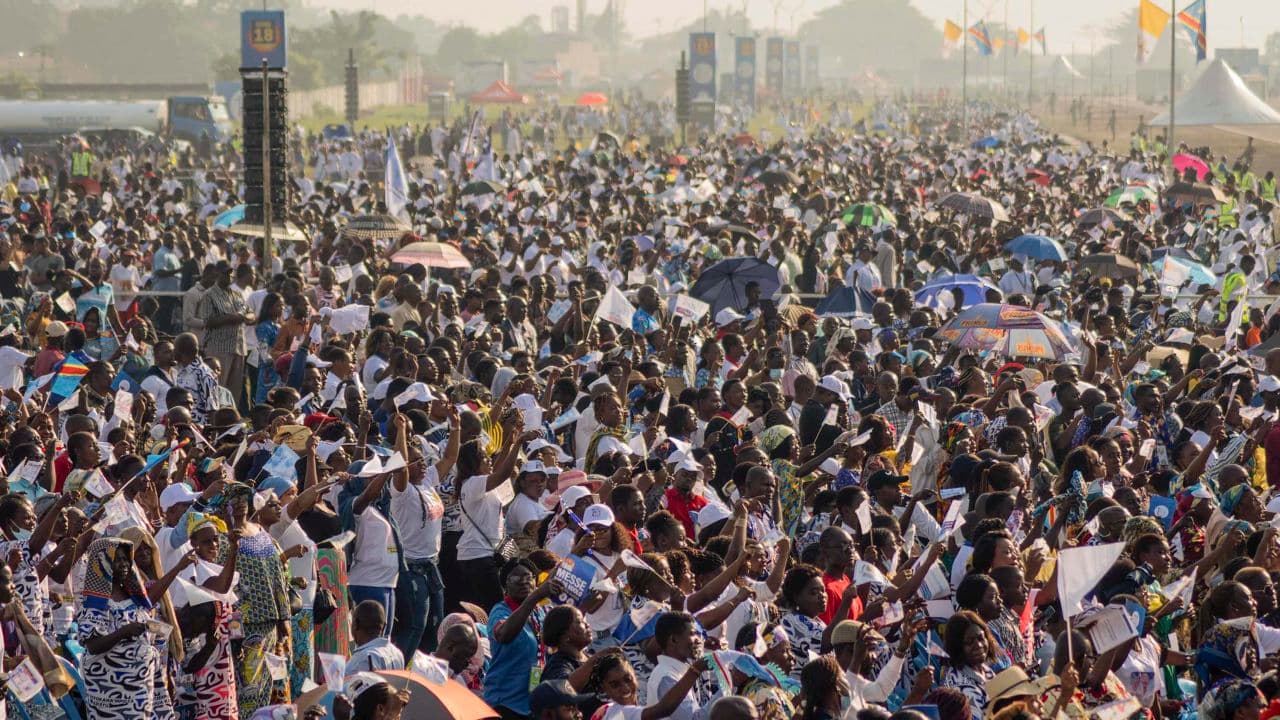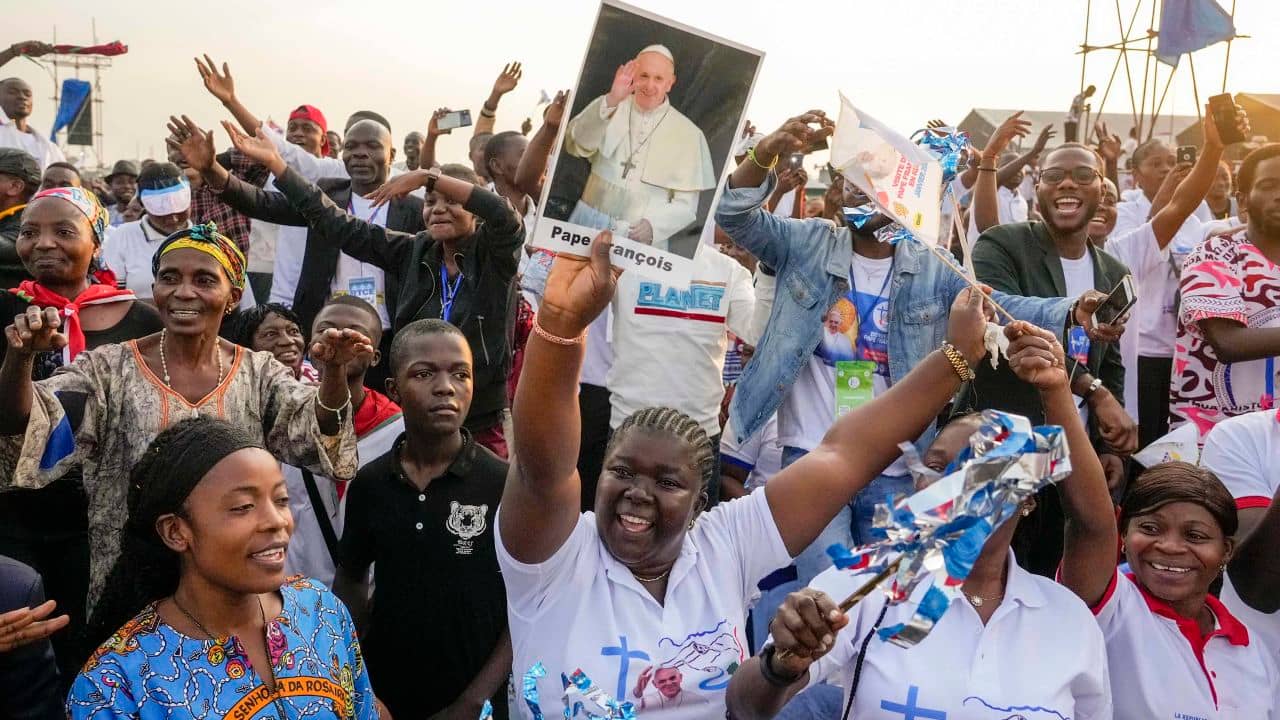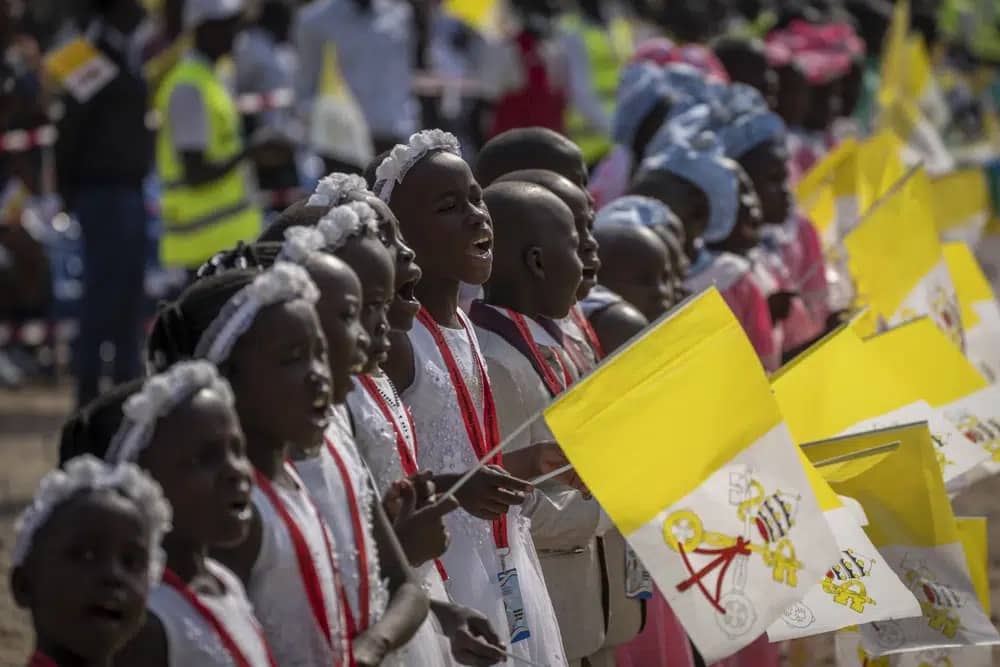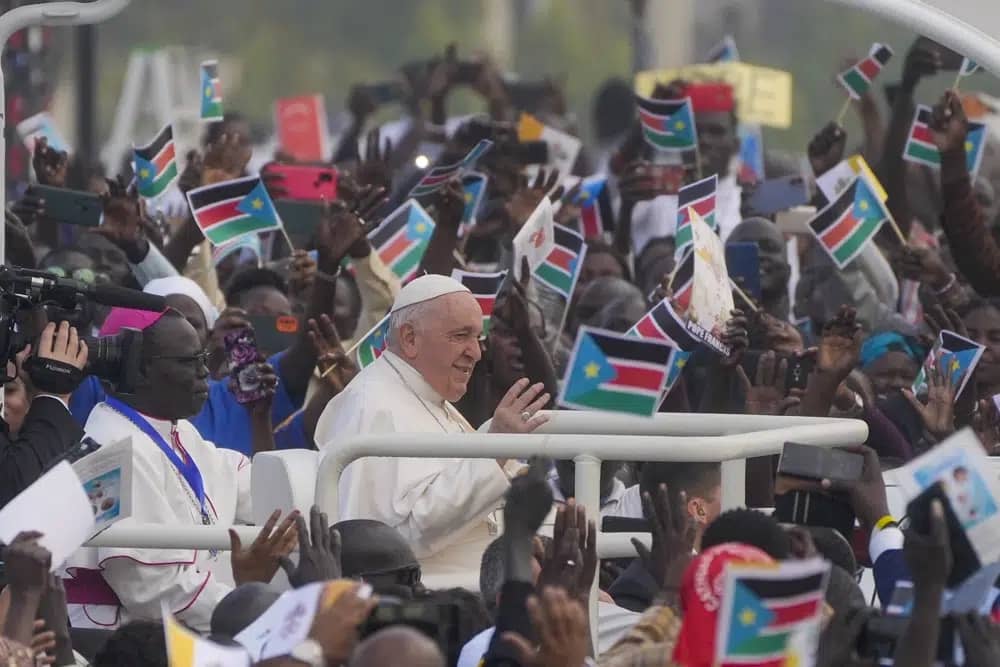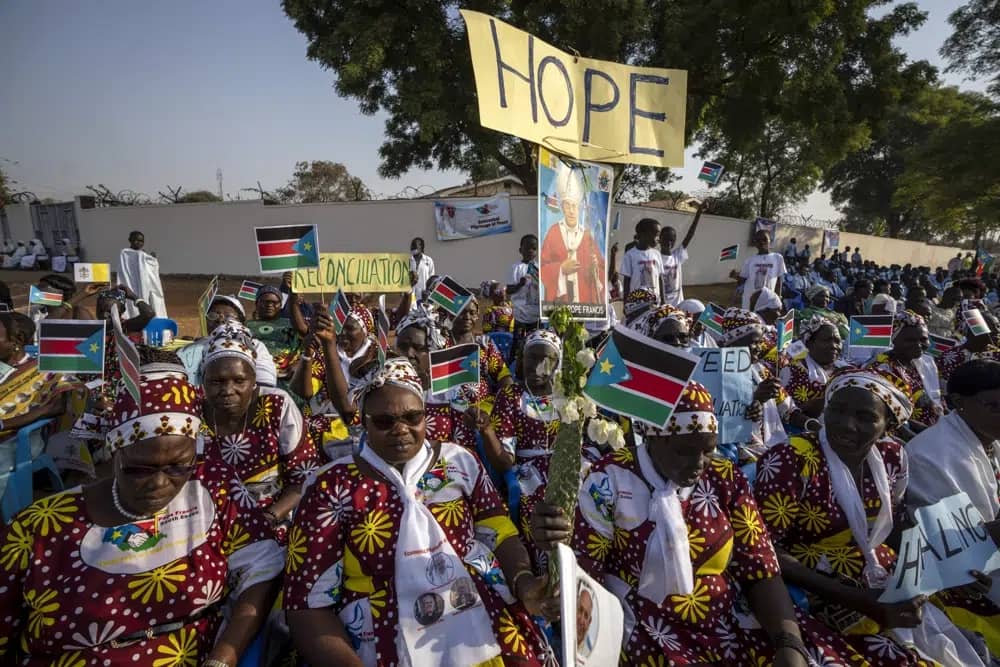KINSHASA – On his third day in the Congolese capital, Pope Francis met with young people and catechists Thursday, saying it’s up to them to build a better future by resisting the tug of hatred and corruption and rooting themselves in community, prayer and service.
Speaking during the Feb. 2 meeting, the pope told the crowd to look at their hands, saying, “God has placed the gift of life, the future of society and the future of this great country in those hands of yours.” The pope was interrupted repeatedly by the crowd of some 65,000 youth, who cheered and chanted throughout the address.
“Ask yourself, what are my hands for? For building up or for tearing down, for giving or for grabbing, for loving or for hating?” he said, noting that the hand can either be squeezed into a fist, or extended and offered to others.
“Young people, you who dream of a different future: from your hands, tomorrow can be born; from your hands, peace so lacking in this world can at last come about,” he said.
Pope Francis spoke to youth and catechists Thursday, his third day in Kinshasa, as part of a Jan. 31-Feb. 5 tour of Africa that will also include a visit to South Sudan alongside the Archbishop of Canterbury, Justin Welby, and the Moderator of the Church of Scotland, Iain Greenshields.
So far, the pope has met with Congolese authorities, as well as victims of the violent war bloodying the country’s eastern regions and members of various charitable organizations who assist them.
Congo is infamous for the decades-long conflict, which has left millions dead and displaced, and for the vast disparity between the wealth yielded by its mineral-rich soil, with diamonds being its most famous product, and the stark poverty in which most of the population lives.
After his meeting with youth and catechists, Francis will meet with Congolese Prime Minister Sama Lukonde, and will hold a public meeting with priests and religious in Congo before meeting privately with Jesuits in the country.
In his speech to the young people and catechists gathered in Kinshasa’s Martyr’s Stadium, the pope said each finger of the hand represents something essential for building a better future.
He said the thumb, the strongest finger, symbolizes prayer, which is “the driving force in your life” and is what allows a person to grow and mature. He urged youth to speak to Jesus freely and frankly, saying, “God loves this kind of living, concrete and heartfelt prayer,” which allows him to intervene in daily life.
The index finger symbolizes community, he said, and his audience not to “ruin your youth by becoming isolated and closed in on yourselves.”
“Going it alone may seem enticing, but it ends up leaving us only with great emptiness,” he said, and warned about the dangers of drugs, which he said often leads people to hide from others and “from an authentic life, for the sake of feeling all-powerful,” while becoming “deprived of everything.”
Francis also warned about what he said was an “addiction to the occult and witchcraft” prominent in many African societies, saying, “this form of dependency imprisons us in fear, vengeance and anger.”
In terms of how they relate to others, the pope cautioned youth against falling into “regionalism, tribalism, or anything that makes you feel secure in your own group, but at the same time is unconcerned with the life of the community.”
“You know what happens: first, you believe in prejudices about others, then you justify hatred, then violence, and in the end, you find yourself in the middle of a war,” he said, and told youth to get to know someone from a different group or tribe.
Pope Francis also warned about the dangers of social media, saying that while it is good for helping people stay connected, “life is more than just tapping the screen with a finger.”
He told youth to spend time with other people, saying community is key to building the future of their country.
To this end, he told youth gathered in the stadium to hold hands with one another, saying, “you are responsible for others, as a vital part of a great fraternal network in which everyone supports everyone else, and that you are indispensable.”
He mentioned several saints to look to as examples, including Congolese martyrs Blessed Isidore Bakanja and Blessed Marie-Clémentine Anuarite.
RELATED: Congo Catholics urge sainthood for two beloved martyrs
Turning to the middle finger, the tallest, Francis said it symbolizes honesty, which involves “not getting entangled in the snares of corruption.”
Francis, who has repeatedly condemned corruption among the DRC’s own leadership and among the wealthy global elites throughout his visit, said Christians “cannot fail to be honest; otherwise, they betray their identity.”
“Without honesty, we are not disciples and witnesses of Jesus; we are pagans, idolaters who worship our own ego rather than God, people who use others rather than serving them,” he said, saying corruption can be stopped following the bible verse, “do not be overcome by evil, but overcome evil with good.”
Speaking to youth directly, Pope Francis voiced hope that that they would be “the ones who transform society, the ones who turn evil into good, hatred into love, war into peace.”
“Each one of you has a treasure that no one can steal from you. It is your power to make choices. In fact, you are the choices you make, and you can always choose to do the right thing,” he said.
Pope Francis said the fourth finger on the hand, the ring finger, signifies forgiveness, which “means being able to start over” without forgetting the past, but “refusing to repeat it.”
Forgiveness means accepting the idea “that no one is perfect and that everyone, not just myself, has the right to make a new start,” he said, saying it is the hallmark of a Christian that they not only “love those who love them, but they choose to halt the spiral of personal and tribal vendettas with forgiveness.”
However, he said it is impossible to forgive others without first being forgiven by God, and urged youth to go to confession regularly.
Turning to the pinky finger, the pope said it symbolizes service, and that “service is the force that transforms the world.”
He told youth to ask themselves daily what they can do for others and how they can best serve the church, their communities, and their country, and thanked catechists for their work, saying, “for so many communities, you are as vital as water; always help them to grow by the integrity of your prayer and your service.”
Follow Elise Ann Allen on Twitter: @eliseannallen
